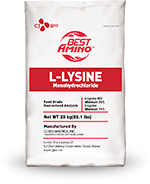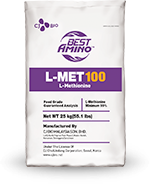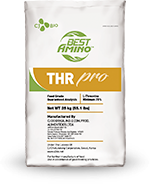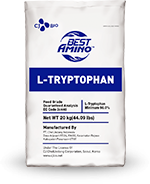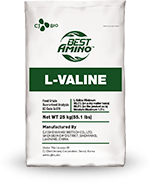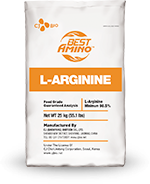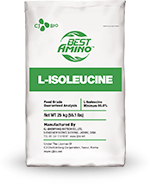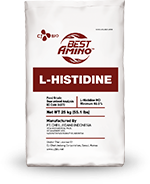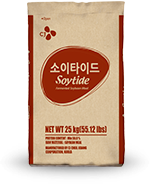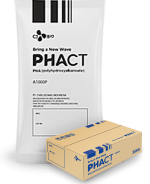L-Valine: A key to sustainable future
Nov. 09, 2020
- L-Val
- Metabolism
- Nutrition
INTRODUCTION
Sustainability and welfare are vital for the continued growth and success of the global poultry industry. Technology, nutritional advancements, and genetic selection are responsible for improvements in production efficiency and livability. These improvements have dramatically decreased the environmental impact of poultry production by reducing the resources required for rearing poultry, including farm land for crops, water, while also decreasing greenhouse gas emissions. It is necessary to continually identify new technologies to further advance increases in sustainability and welfare to maximize profitability. L-valine contributes to these goals by reducing environmental footprint, promoting feather development, decreased intestinal stress due to reduction of intact protein fermentation in the lower intestine, and enhanced bird performance.
Valine is well recognized as the 4th limiting amino acid in most US poultry diets, with the possible exception of diets containing over 5% animal protein meal. In recent years, L-valine has become an economically viable ingredient for use in poultry diets. However, reasons for L-valine use in diets go beyond that of least cost formulation only. Traditional reasons for synthetic amino acid uses have been reductions in diet cost and dietary crude protein levels, typically at the expense of soybean meal. L-valine inclusion can reduce dietary crude protein by up to 1% in an all-vegetable diet. It is well established that this reduction in protein level will not negatively impact bird performance or subsequent yield if digestible amino acid levels are maintained.
Benefits of protein reduction on environment and intestinal health
Decreasing dietary crude protein reduces soybean meal inclusion rate, which reduces nitrogen excretion and water intake resulting in lower ammonia emissions, lower litter pH and reduced incidence of footpad dermatitis (Fig. 1). Elevated water intake is required to excrete excess nitrogen from the body. Reduced dietary protein level decreases water intake which in turn decreases litter moisture that aids in the reduction of the incidence and severity of footpad dermatitis. The reduction of 1% dietary crude protein will reduce nitrogen excretion by 10%, resulting in a 25% reduction of ammonia emissions, while increasing grade a paws by 15%, and a 9% reduction in litter volume. These improvements in litter quality benefit the birds environment and welfare, as severe foot pad dermatitis can limit movement of the animal and high ammonia levels can be harmful to its respiratory tract and eyes. Reducing these conditions benefit both animal welfare and profitability through improved performance and higher salable value.
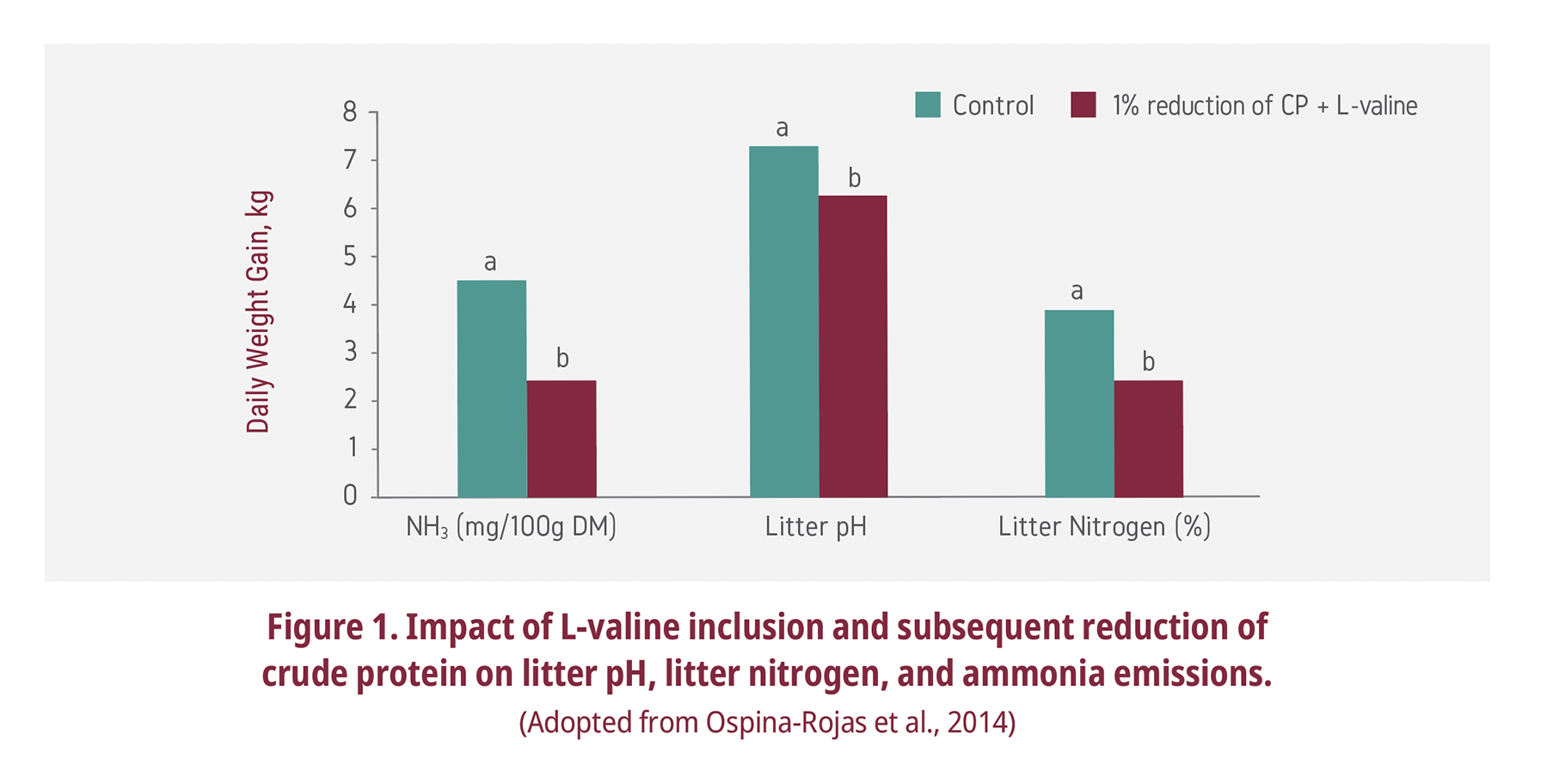
Additionally, reduction of the amount of undigested protein reaching the hindgut is beneficial for intestinal health. Intact protein exiting the small intestine have major impacts on intestinal functions and health. The fermentation of undigested protein produces by-products such as amines and ammonia and allows the proliferation of pathogenic bacteria (Qaisrani et al., 2015) such as Clostridium perfringens, which is recognized as the cause of necrotic enteritis. Cecal putrefaction of intact proteins produces 3-methyl-indole (skatole), p-cresol, phenol, and indole which have toxic effects in the body. Reducing dietary crude protein will reduce the amount of intact protein reaching the lower small intestine thus reducing the growth of pathogenic bacteria and the production of these harmful by-products.
Improving performance and profitability
Aside from diet cost, other health and welfare benefits associated with crude protein reduction when using L-valine. The use of the next limiting amino acid in diet formulation result in changes in ingredient concentration, particularly soybean meal; resulting in higher dietary corn levels, which decreases the amount of mixer added fat required in the diet. The advantage in improved pellet durability have been demonstrated to range between 7 and 14 % with dietary formulation adjustments attributed to the inclusion of L-valine (Fig. 2). This level of improvement in pellet durability can improve feed conversion ratio by up to 1.5 points and increase the dietary caloric value by 18 kcal/lb of MEn (McKinney and Tetter, 2004).
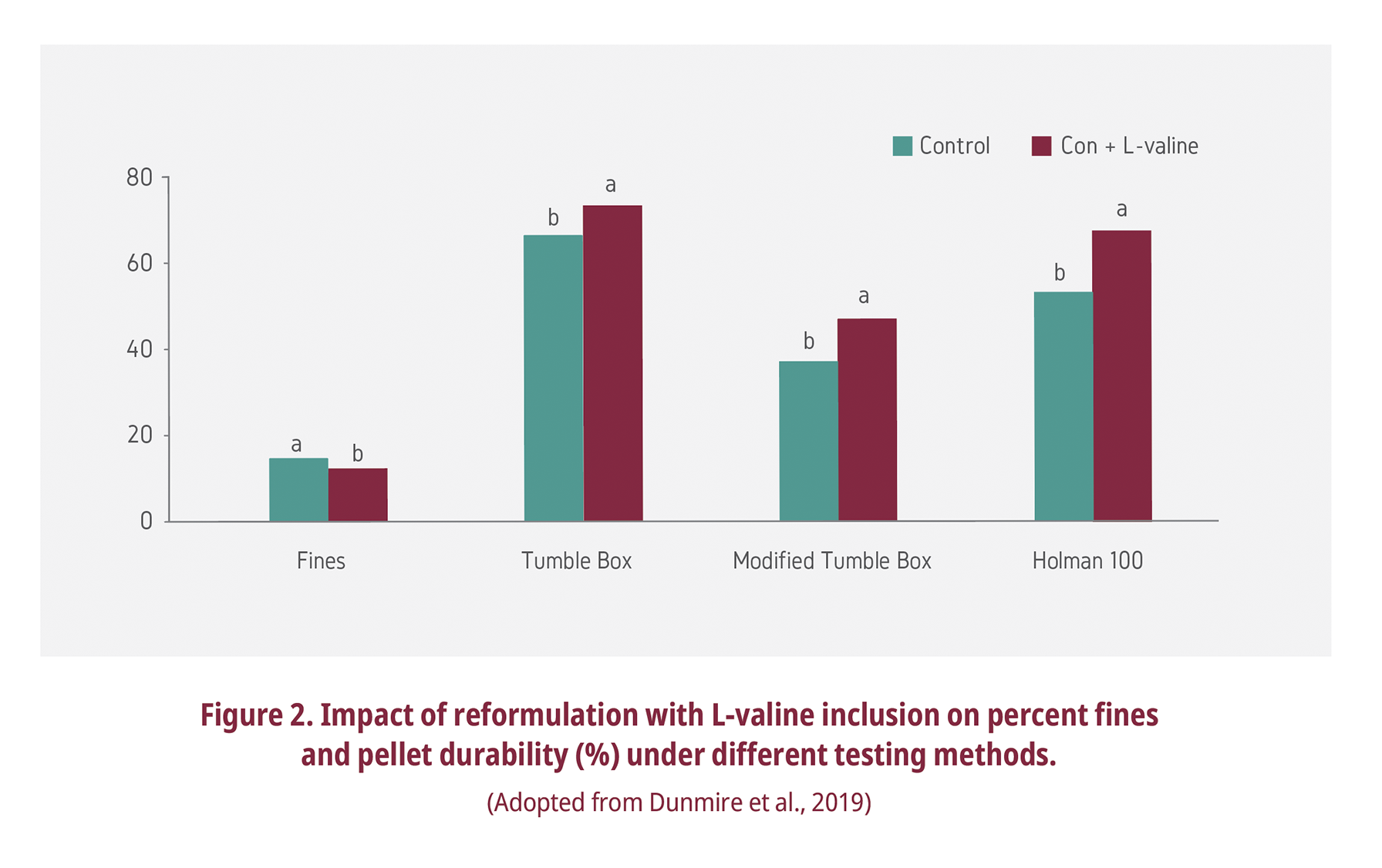
Having an economically viable source of valine provides nutritionist flexibility to maintain bird performance and improve health and welfare. Historically, dietary formulations have used valine ratios ranging between 74 and 76% of digestible lysine. However, most recent published data indicate that valine requirements of the modern broiler actually range between 77 and 84% of digestible lysine (Tavernari et al., 2013; Duarte et al., 2014; Agostini et al., 2019; Schedle et al., 2019; Maynard et al., 2020). Now nutritionists can utilize an economic synthetic form of valine to increase the ratio and capitalize on the performance benefit by meeting the birds requirement. A recent report revealed a $0.03 (USD) return over feed cost per bird advantage can be realized when increasing the valine concentration in the diet with the improvements in feed conversion ratio and processing weights (Kriseldi et al., 2020). These economic advantages would not have been possible prior to L-valine availability; as additional soybean meal or other protein source would be required to increase the dietary ratio.
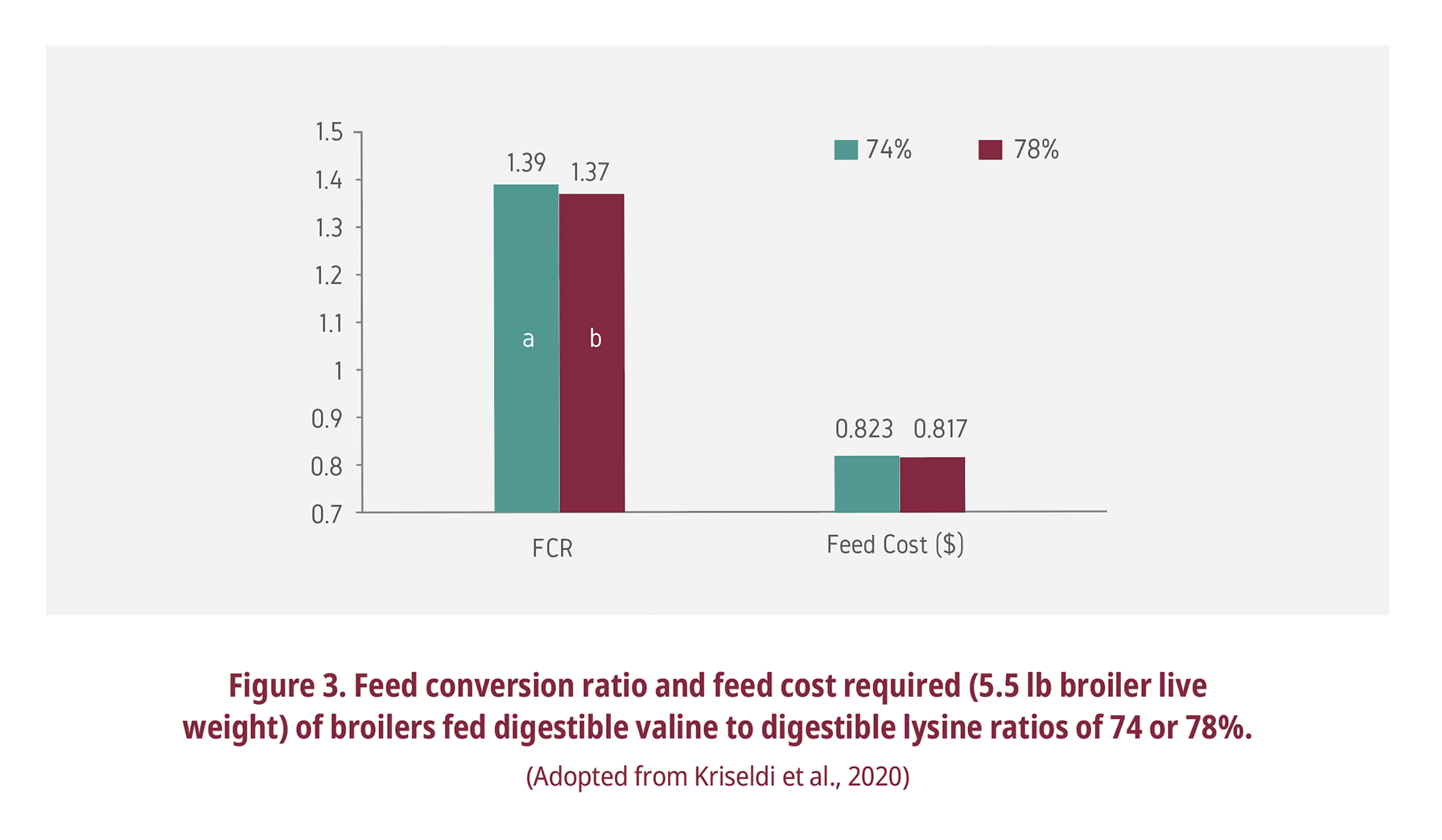
Impact on feathering and bone mineralization
The modern commercial broiler is a rapidly growing, efficient user of natural resources. In order to maintain adequate performance and welfare, proper bone mineralization and feather development is required to ensure skeletal development and skin protection. Valine plays an essential role in both of these vital activities. Valine concentration in the feather increases with age (Fisher et al., 1981), and inadequate dietary valine decreases feather protein and cysteine content. This results in the concave structure of the feathers as they bend away from the body (Farran and Thomas, 1992a). Poor feathering and feather quality results in skin scratches and injuries which can increase carcass condemnations. Additionally, inadequate dietary valine reduces the bone calcium content through decreased mineral deposition by depressing osteoblastic activity. Osteoblasts are responsible for producing the bone matrix of protein and minerals and their reduced activity results in elevated calcium excretion via the kidney (Farran and Thomas, 1992b) as opposed to bone deposition reducing bone strength (Ospina-Rojas et al., 2017). Improper bone development can result in rickets and tibia dyschondroplasia, reducing bird performance and compromising welfare. These observations can be exacerbated when the branched chain amino acid ratios become unbalanced, most likely associated with high levels of dietary leucine. Ingredients such as corn DDGs, peanut meal, and corn gluten meal have excess levels of digestible leucine which may cause imbalances in branched chain ratios within broiler and breeder diets; adjustment of these ratios by the addition of L-valine may benefit feathering, bone density, and performance.
Conclusion
TThe use of L-valine is not just for lowering feed cost. The additional auxiliary benefits through the dietary inclusion of L-valine includes: performance, pellet quality, feathering, intestinal health, reduction in environmental impact while improving animal welfare, profitability, and sustainability.
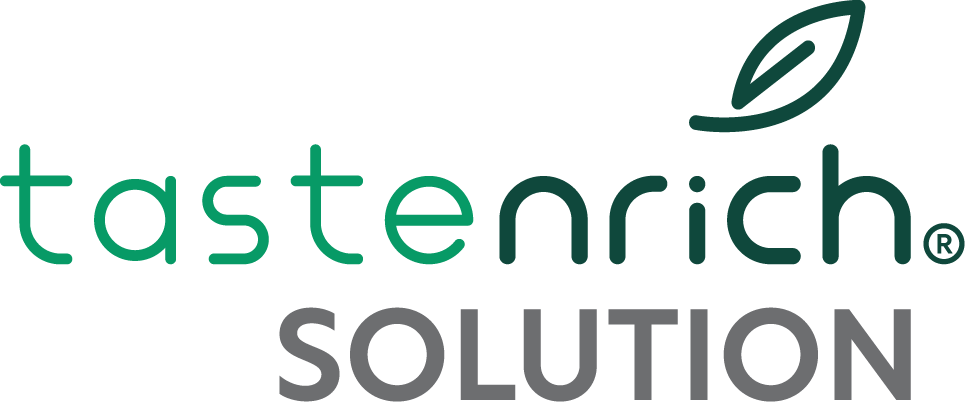
.png)
.png)



